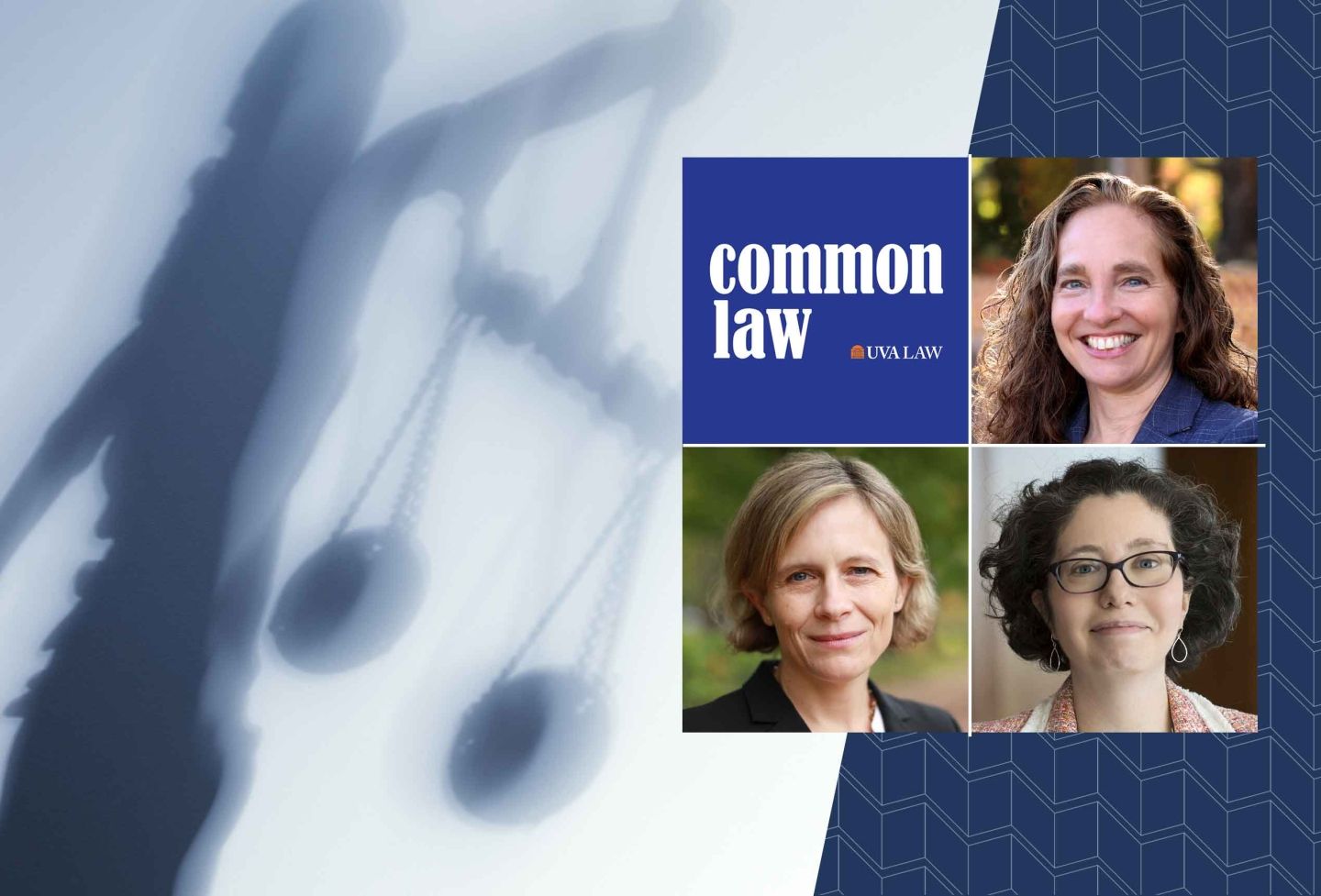Scholars from across the nation discussed the U.S. president’s foreign affairs powers, and how they might be checked by other branches of government, at the Virginia-Duke Foreign Relations Law Roundtable hosted by the University of Virginia School of Law on Friday.
“The President’s Delegated Foreign Affairs Powers” was organized by Professor Kristen Eichensehr, director of UVA Law’s National Security Law Center, and Duke law professor Curtis A. Bradley, a former UVA Law faculty member. Professor Ashley Deeks, the former director of the center who is on leave working for the White House, also helped plan the gathering.
Eichensehr said the president has significant independent constitutional authority over foreign relations, but the executive branch also draws heavily on broad and longstanding delegations of authority from Congress in statutes like the National Emergencies Act and the International Emergency Economic Powers Act.
“It’s especially timely to focus on those delegations now because the Trump administration pushed the envelope in exercising delegated power, even in circumstances where Congress tried to push back and resist,” she said. “The Supreme Court has also put delegations in the spotlight with suggestions from a number of justices that the court might reinvigorate the nondelegation doctrine and begin striking down congressional delegations of authority as overly broad.”
The nondelegation doctrine is a principle in administrative law that Congress cannot delegate its legislative powers to the executive branch.
The Supreme Court has not struck down congressional delegations for violating the nondelegation doctrine since the New Deal era, but several conservative justices have suggested it should be revived, which could affect powers long delegated to administrative agencies.
The roundtable attendees presented works in progress that looked at different facets of delegated powers. Many considered ways that Congress can better structure delegations going forward to maintain checks on executive exercises of delegated authority, including through the use of mechanisms like sunset clauses and fast-track procedures, Eichensehr said.
Others looked at how courts review presidential exercises of delegated power and how international law interacts with delegations.
Still others looked at specific kinds of delegations, like delegations related to war powers and national security review of corporate transactions, such as the Trump administration’s actions against TikTok, the social media video app that has posed security concerns.
“The roundtable has built up a culture of fostering deep dives on substantive issues, coupled with collegial debate over areas of disagreement, which are frequent,” Eichensehr said.
The participants were:
- Curtis A. Bradley, Duke Law School
- Elena Chachko, Harvard Law School
- Kristen Eichensehr, University of Virginia School of Law
- Jean Galbraith, University of Pennsylvania Carey Law School
- Jack Landman Goldsmith, Harvard Law School
- John Harrison, University of Virginia School of Law
- Oona A. Hathaway, Yale Law School
- Rebecca Ingber, Benjamin N. Cardozo School of Law
- Andrew N. Keller, U.S. Senate Committee on Foreign Relations
- Timothy Meyer, Vanderbilt Law School
- Saikrishna B. Prakash, University of Virginia School of Law
- Michael Ramsey, University of San Diego School of Law
- Shalev Roisman, University of Arizona James E. Rogers College of Law
- Paul B. Stephan, University of Virginia School of Law
- Edward T. Swaine, George Washington University Law School
- Margaret L. Taylor, USAID
- Matthew C. Waxman, Columbia Law School
- Ingrid Brunk Wuerth, Vanderbilt Law School
Founded in 1819, the University of Virginia School of Law is the second-oldest continuously operating law school in the nation. Consistently ranked among the top law schools, Virginia is a world-renowned training ground for distinguished lawyers and public servants, instilling in them a commitment to leadership, integrity and community service.


